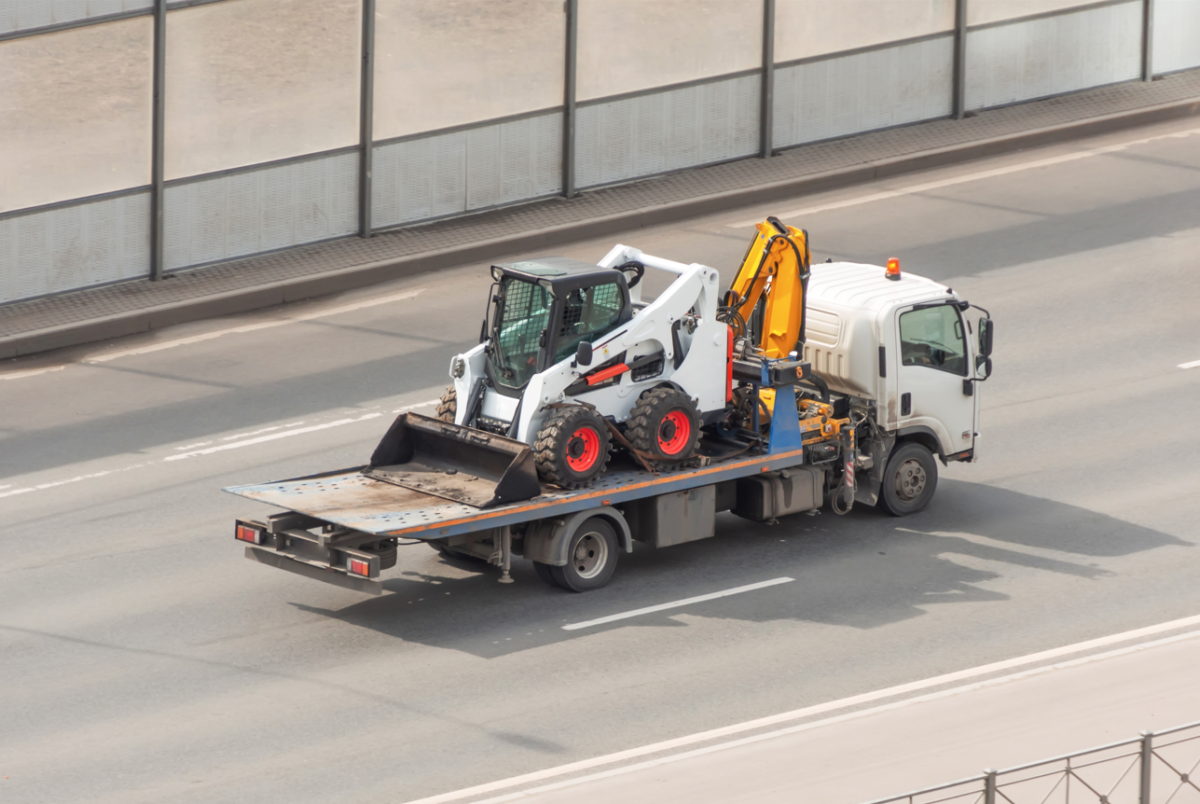
Descartes outlines four surprising benefits of logistics software for construction
Route optimisation, tracking, AI, yard management and proof of delivery (PoD) technology can make big differences in surprising ways for those running construction sites. Andrew Tavener, Head of Marketing Descartes Fleet Solutions in Europe explains how these technologies support operational efficiencies and cut costs.
Cloud-based vehicle tracking software is fast becoming the staple for plant, site and fleet managers to streamline efficiencies, reliability and performance and also for simply knowing where everything is at any given time. In today’s challenging operating environment, the advantages can save time and money. Some of the less-known advantages of this software, however, are equally attractive for plant managers and contractors.
- Reduces Damage in Transit
There is nothing worse than receiving essential products for a build that are cracked, broken or ruined. For construction projects any damage in transit is expensive, not just in terms of the time it takes to replace the order but also because of the knock-on effect it has on project schedules and extending timeframes, increasing labour costs and causing delays. It also means the Plant Manager will need to quickly reorganise a re-delivery at a cost to a construction site.
What if the damage could be prevented by understanding how it occurs? For example, data can be used to measure damage rates, which uses analytics to identify and rectify improper loading or handling practices.
Proof of Delivery software means tracking accountability at every touchpoint for transparency over who was responsible at any given time for securing the order safely. This can include picture evidence of delivery and signatures. With a mix of analytics, accountability and making essential checks, damaged goods in transit will diminish.
- Addresses Driver Shortages
Blame it on Brexit or Covid-19 or simply declining recruitment, driver shortages have rattled the Transport sector. Route optimisation and delivery scheduling software can really help here, because it essentially enables vehicles to deliver more in fewer miles, meaning the drivers working with you are used optimally. Route optimisation software will help increase delivery capacity minimising the need to recruit new drivers.
As well as looking for new incentives to attract new drivers, fleet managers should also address boosting driver productivity and retain the drivers they have on the books.
Retaining drivers is easier if you reduce their stress with realistic delivery schedules, with optimised routes. The routes are properly scoped to include driving conditions, road networks and legal drivers’ hours limits to ensure road safety and legal compliance. The data enables realistic delivery times, and the real-time communications ensure any hiccups on the road are relayed back and built into the fluid planning. With AI now in the mix, it can be worked out how productive each driver is (newbie vs seasoned) and adjust for the capability to avoid stress.

- Drives Sustainability
Analytics can measure utilisation, fuel consumption and vehicle performance. Software can work out when you have poor fuel economy and which vehicles and drivers (and even their specific driving habits) need to be improved. Route optimisation also means that you cut down on unnecessary miles, petrol and road time, all of which tick those boxes for greener operations. Last-mile delivery becomes a kind of art form with the latest technology. Reducing carbon emissions and fuel consumption through smart routing sees obvious sustainability benefits and there is also the reduction of paperwork with digital solutions, which is an aim for a less wasteful future.
- Handles Challenges of Site Delivery
GPS-tracking software makes it easy to keep track of the supply chain in real-time. Coupled with good communications, site managers will always know exactly when the delivery is going to arrive, to plan ahead for receiving it, so there are no more surprises as deliveries turn up and no one is prepared or even available to receive them. Worse still, is when an order is left in the wrong place on-site, adding another little logistical nightmare to sort out.
Further to this, with dedicated Yard Management software, it’s possible to manage, plan and record trailer moves, inspections and security seal changes with an audit trail for loss prevention and for government compliance programs such as Customs Trade Partnership Against Terrorism (C-TPAT). By linking the software for the designated storage area or yard to transportation software it’s possible to automate door assignments for trucks entering and leaving and empty trailers can be assigned. The software essentially reduces any potential for bottlenecks, unused vehicles and trailers, and makes management of confusing sites less reactive and more planned.
Rigorous inventory checking when loading and unloading is another benefit of cloud-based software, making sure that builders are never left short of materials from miscounted orders, or ‘light fingers’, along the way.
Yard management, route optimisation, tracking, AI and Proof of Delivery software can be used in conjunction and viewed as essentially one holistic management system for operations. Every driver, every vehicle, every route and most importantly every order has a level of oversight that you simply cannot accomplish without using this specialised software.
For more details on the Descartes range of solutions visit https://routinguk.descartes.com/




